We’re delighted to share this month’s newsletter, focusing on a vital topic: supplements versus medications. As your naturopathic doctors, we’re dedicated to empowering you with the knowledge to make informed, personalized decisions about your health.
Supplements vs. Medications: Understanding the Differences
The rising popularity of supplements reflects a growing desire for natural, holistic wellness. However, it’s essential to differentiate between supplements and pharmaceutical medications.
Why This Matters
- Increased supplement use: Individuals are increasingly turning to supplements for preventative care and to address specific health concerns.
- Pharmaceutical vs. supplement industry: Understanding the regulatory differences is crucial for safe and effective use.
- Polypharmacy vs. supplement stacking: Both medications and excessive supplement use can lead to adverse effects.
- Natural vs. pharmaceutical: Determining when natural remedies or medications are most appropriate is essential for optimal health.
Herbal and Supplemental Therapies
Supplements encompass a range of substances:
- Vitamins and minerals: Essential for bodily functions.
- Amino acids: Building blocks of proteins.
- Herbal remedies: Complex plant-derived mixtures (turmeric, ginger, black cohosh).
- Nutraceuticals: Isolated nutrients with specific benefits.
- Synergy: Combining supplements for enhanced effects (iron + vitamin C).
Professional guidance is vital to ensure appropriate supplement use.
The Rol of Big Farma & Supplement Industry
The pharmaceutical industry provides essential medications, but concerns about side effects and costs drive interest in alternatives.
The supplement industry, with less stringent regulations, requires careful consideration:
- Purchase from reputable sources.
- Avoid excessive “stacking.”
- Consult a healthcare provider.

Repletion Strategies: Addressing Nutrient Deficiencies
Supplements address deficiencies that can lead to health issues. Common deficiencies include:
- CoQ10: Food Sources- Organ meats, fatty fish, nuts, seeds.
- Vitamin D: Food Sources- Fatty fish (salmon, mackerel), egg yolks, fortified dairy.
- Magnesium: Food Sources- Leafy greens, nuts (almonds, cashews), seeds (pumpkin, chia), dark chocolate, avocados.
- Iron: Food Sources- Red meat, liver, spinach, lentils, quinoa, pumpkin seeds.
- Iodine: Food Sources- Seaweed, fish, dairy, eggs, iodized salt.
- Folate: Food Sources- Leafy greens, legumes, asparagus, citrus fruits, avocado.
- Vitamin B12: Food Sources- Animal products (meat, eggs, dairy, seafood).
- Vitamin A: Food Sources- Carrots, sweet potatoes, liver, spinach, bell peppers.
- Selenium: Food Sources- Brazil nuts, seafood, eggs, sunflower seeds.
- Zinc: Food Sources- Oysters, beef, pumpkin seeds, chickpeas, cashews.
A “food-first” approach is ideal, with supplements filling nutritional gaps.
Naturopathic Approach to Supplementation
Our approach includes:
- Careful risk-benefit assessment of treatment options.
- Lab testing for deficiencies and imbalances.
- Prioritizing whole-food nutrition, with targeted supplementation.
- Functional testing for chronic conditions.
Herbal Remedies for Specific Conditions
Herbal remedies offer natural support:
- Ashwagandha: Stress management and energy.
- Turmeric: Anti-inflammatory for joint pain and digestion.
- Black Cohosh: Hormonal balance, especially during menopause.
- Ginger: Nausea, bloating, and digestion.

Nutraceuticals vs. Pharmaceuticals
- Curcumin (Turmeric) vs. NSAIDs: Curcumin offers gradual anti-inflammatory effects with fewer side effects than rapid-relief NSAIDs, which carry risks.
- 5-HTP vs. SSRIs: 5-HTP may offer gentler mood support than SSRIs, which are prescription medications with potential side effects.
- Berberine vs. Metformin: Berberine can regulate blood sugar like metformin, with potentially fewer side effects.
The Truth About Supplements
- Nutraceutical research is expanding.
- Consultation with a naturopathic doctor is crucial.
- Supplement interactions with medications are possible.

Achieving Optimal Health
Our goal at Lake Oswego Health Center is to identify and address the root causes of health concerns through comprehensive testing and personalized care. By focusing on nutrition, lifestyle, and targeted supplementation based on individual needs, we aim to minimize reliance on pharmaceutical interventions. We believe in empowering you to achieve optimal health through a holistic and evidence-informed approach.
Schedule a consultation to create your personalized health plan!
To book an appointment now, call today at: 503-505-9806


